This article needs additional citations for verification .(November 2018) |

Charley Riley (April 22, 1922 - May 22, 1994) is an inductee of the Boxing Hall of Fame. He was born in St. Louis, Missouri and was sometimes known as Chillin' Charley.
This article needs additional citations for verification .(November 2018) |

Charley Riley (April 22, 1922 - May 22, 1994) is an inductee of the Boxing Hall of Fame. He was born in St. Louis, Missouri and was sometimes known as Chillin' Charley.
Charley Riley was a top featherweight boxing contender in the 1940s and 1950s. He achieved nationwide recognition in the United States with a trio of exciting fights with ex-NBA featherweight champ Phil Terranova. He lost via a one-punch body-shot knockout on February 22, 1946, but on April 30, 1947, evened the score with a 7th-round TKO of Terranova. On September 3, 1947, he scored a first-round TKO of Terranova. Reports were that the referee stopped this fight on the advice of the ring doctor because Terranova was bleeding profusely.
Riley fought Willie Pep for the featherweight championship in St Louis January 16, 1950 and was knocked out by Pep by a body punch in the fifth round. He accepted a non-title bout with reigning featherweight champion Sandy Saddler November 1, 1950 and lost a decision. He put pressure on Saddler in the first part of the fight but faded in the later rounds. During his career Riley also faced Glen Flanagan, Jackie Graves, Corky Gonzalez, George Araujo and Redtop Davis.
Riley retired in 1954 with a record of 69 wins (39 by knockout), 29 losses, and 2 draws. [1] Although he was never a world champion, Charley Riley was inducted to The Ring magazine's Boxing Hall of Fame (disbanded in 1987).[ citation needed ]
He was also known as the "Finney Avenue Fashion Plate" (an avenue in St. Louis) for his attention to dress.

A knockout is a fight-ending, winning criterion in several full-contact combat sports, such as boxing, kickboxing, Muay Thai, mixed martial arts, karate, some forms of taekwondo and other sports involving striking, as well as fighting-based video games. A full knockout is considered any legal strike or combination thereof that renders an opponent unable to continue fighting.

Salvador "Sal" Sánchez Narváez was a Mexican professional boxer born in the town of Santiago Tianguistenco, Estado de México. Sanchez was the WBC and The Ring featherweight champion from 1980 to 1982. Many of his contemporaries as well as boxing writers believe that had it not been for his premature death, Sánchez could have gone on to become the greatest featherweight boxer of all time. Sánchez died on August 12, 1982, in a car accident while driving from Querétaro to San Luis Potosí. He is also the uncle of Salvador Sánchez II.
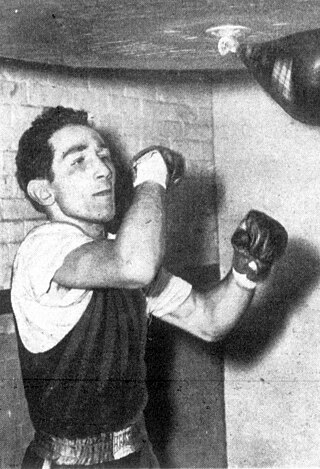
Guglielmo Papaleo was an American professional boxer, better known as Willie Pep, who held the World Featherweight championship twice between the years of 1942 and 1950.
Danny Lopez is an American former professional boxer who was the WBC featherweight champion of the world from November 1976 to February 1980. His nickname was Little Red.
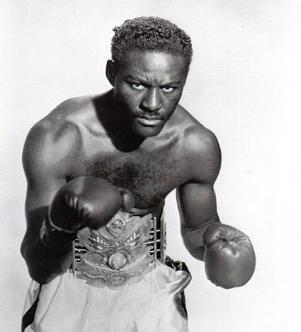
Ezzard Mack Charles, was an American professional boxer who competed from 1940 to 1959. Known as the Cincinnati Cobra, Charles was respected for his slick defense and precision, and is often regarded as the greatest light heavyweight of all time, and one of the greatest fighters pound for pound, having defeating numerous Hall of Fame fighters in three different weight classes. Charles was the world heavyweight champion from 1949 to 1951, and made eight successful title defenses in under two years.

Lew Jenkins was an American boxer and NYSAC and The Ring lightweight champion from 1940 to 1941. He was born in Milburn, Texas and was raised during the Great Depression. He began fighting in carnivals and later continued his boxing in the US Coast Guard. He was an exceptionally powerful puncher and 51 of his 73 wins were by knockout. His managers included Benny Woodhall, Frank Bachman, Hymie Kaplan, and Willie Ketchum and his trainer was Charley Rose.
During the 1950s, a couple of relatively new developments changed the world: World War II had only been over for five years when the 1950s began, and television was beginning to make a major impact internationally. In boxing, changes connected to these developments could be seen too, as boxers who fought at the 1940s conflict returned to their homes and many of them were back in the ring. Television producers were in love with sports, which provided the viewer with an opportunity to observe sporting events live, and boxing was not the exception to the rule; many television networks began to feature fights live during the weekends, and the Gillette Friday Night Fights proved to be one of the most popular boxing television series in American history.
Boxing in the 1940s in many ways reflected worldwide events that affected other endeavors as well.
Featherweight is a weight class in the combat sports of boxing, kickboxing, mixed martial arts, and Greco-Roman wrestling.

Joseph "Sandy" Saddler was an American professional boxer. He was a two-time featherweight world champion, having also held the super featherweight title. Over his twelve-year career (1944–56), Saddler scored 104 knockouts and was stopped only once himself, in his second professional fight, by Jock Leslie. Considered to be one of the hardest hitting featherweights, Saddler was ranked number five on The Ring magazine's list of "100 Greatest Punchers of All Time". His nephew is Grandmaster Flash.

Albert "Chalky" Wright was an American featherweight boxer who fought from 1928 to 1948 and held the world featherweight championship in 1941–1942. His career record was 171 wins, 46 losses and 19 draws. In 2003, Wright ranked #95 on The Ring magazine's list of the 100 Greatest Punchers of All-Time.

Sammy Angott was born Salvatore Engotti in a Pittsburgh area town in Pennsylvania. He was known as a clever boxer who liked to follow up a clean punch by grabbing his opponent, causing him to be known as "The Clutch." In his career, Angott met the best fighters in the welterweight and lightweight divisions. These included Sugar Ray Robinson, Bob Montgomery, Beau Jack, Fritzie Zivic, Henry Armstrong, Redtop Davis, Sonny Boy West, and Ike Williams. His manager was Charlie Jones.
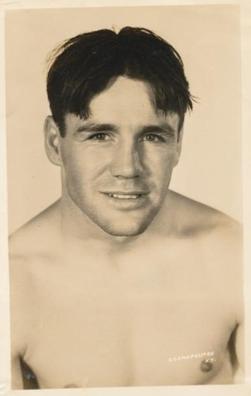
Joey Archibald was a National Boxing Association (NBA) world featherweight boxing champion in April 1939. He was managed by Al Weill, and his trainer was Charlie Goldman.
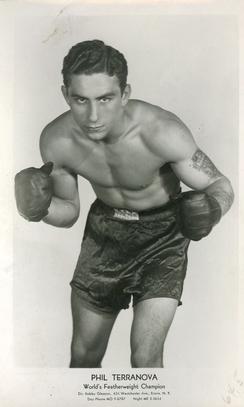
Phil Terranova was an American boxer who took the NBA World Featherweight Boxing Championship in 1943 in a bout against Jackie Callura. His manager was Bobby Gleason.
Rafael Márquez Méndez is a Mexican former professional boxer who competed from 1995 to 2013. He is a two-time world champion in two weight classes, having held the IBF bantamweight title from 2003 to 2007; and the WBC, Ring magazine, and lineal super bantamweight titles in 2007. He also held the IBO bantamweight title from 2005 to 2007, and challenged once for WBO featherweight title in 2011. Marquez was inducted into the International Boxing Hall of Fame as part of the class of 2023.

Julie Kogon (1918–1986) was an American lightweight boxer and world title contender from New Haven, Connecticut.

Harry Lewis, was an American boxer, generally credited with holding the Welterweight Championship of the World from April 1908 to March 1911. He defeated "Young Joseph", the reigning Welterweight Champion of England in London on June 27, 1910, but was not credited with the British Welterweight championship as the fight was sanctioned as a World, and not English title. Boxing writer Nat Fleischer rated Lewis the sixth-greatest welterweight of all time. He was inducted into the International Jewish Sports Hall of Fame in 2002, and into the International Boxing Hall of Fame in 2008.

Teddy "Redtop" Davis, alias Murray (Sugar) Cain, was a featherweight professional boxer from South Carolina.

Paddy DeMarco, was a lightweight professional boxer from Brooklyn, New York, who took the Lightweight World Championship on March 5, 1954, against Jimmy Carter. His managers included Jimmy Dixon and Cy Crespi. His trainer was Dan Florio.
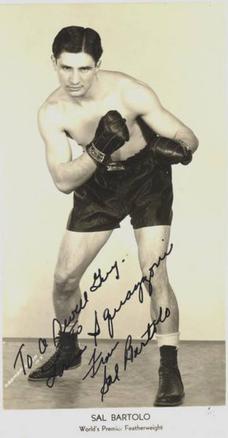
Salvatore Interbartolo, better known as Sal Bartolo was an American boxer and WBA featherweight champion from March 1944 through May 1946. At the time, Bartolo's title was sanctioned by the National Boxing Association (NBA).